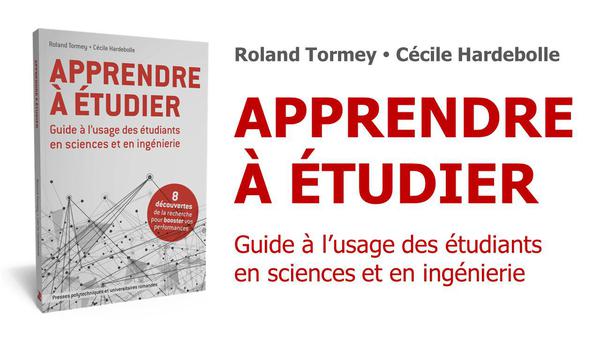A guide to successful studies at EPFL

© 2017 EPFL / Alain Herzog
When it comes to studying at the university level, hard work is not enough. EPFL's Teaching Support Center has identified highly effective study strategies, drawing on several years of research among students. The Center’s findings have just been published in book form.
The first year of undergraduate studies at EPFL is often a shock for students. Many fail, not because they do not work hard or are not smart enough, but simply because the study strategies they used in high school are ill-suited for the complex exercises they now face. This was the conclusion drawn from several studies carried out by EPFL's Teaching Support Center, in close collaboration with professors, to determine the keys to successful studies. The Center’s findings have been published in the book Apprendre à étudier, which is now in stores.

Optimizing the way you work
Apprendre à étudier encourages students to take a closer look at how they solve problems, manage their time, take notes and study for exams. And the fact that students are more autonomous at this point in their studies means they must find an approach that works for them, so that they can master crucial skills, such as applying what they learn in different situations. “At EPFL, students need to quickly adopt more effective study methods given the complexity of the subject matter and the unique way in which science and engineering are taught,” said Roland Tormey, who co-authored the book with Cécile Hardebolle.
Innovative teaching methods
The book is unique in that it is based on concrete evidence from in-class research conducted over several years, in close collaboration with EPFL’s professors. The results have already helped the school develop new, innovative teaching methods: there are now more professors using flipped classroom teaching, clickers and in-class apps. For the Teaching Support Center, this type of applied research plays an extremely important role in improving pedagogical methods and will drive EPFL’s continued excellence in providing quality teaching. “We must change how the sciences and engineering are taught and learned, not because innovation is the current fad, but because we have the data that shows us what works,” said Tormey.
Apprendre à étudier - Guide à l’usage des étudiants en sciences et ingénierie, by Roland Tormey and Cécile Hardebolle, Presses polytechniques et universitaires romandes. Sold at La Fontaine (Rolex Learning Center) and FNAC.